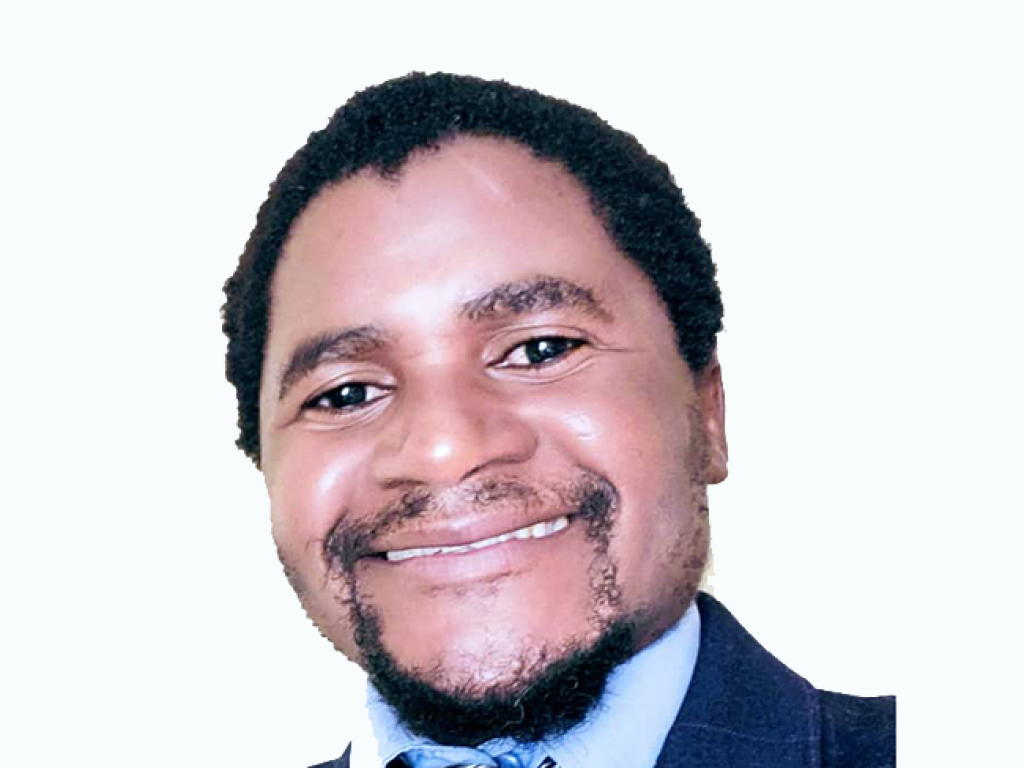Solving real-world problems

The HPI Research School at UCT congratulates Dr Enock Mbewe on achieving his PhD in Computer Science.
Having joined the HPI Research School in 2019, Enock completed his studies under the supervision of Josiah Chavula, with a dissertation entitled Cost-driven Internet Security Decision Model.
Enock has always been driven by a curiosity about how technology can solve real-world problems. Over the years, working with individuals from diverse technological backgrounds, he observed a common trend: many people fear or underutilise technology simply because they do not fully understand it. This observation spurred his early research into how users perceive and interact with technology, particularly the Internet.
One area of particular interest to Enock was security as he realised that many users lacked awareness of even the most basic principles needed to protect themselves online. Recognising this critical gap, he sought to deepen his understanding of the underlying constructs of security protocols. This led him to pursue a master’s degree in Information Theory, Coding, and Cryptography at Mzuzu University in Malawi. To complement this academic foundation with practical skills, he obtained the Certified Ethical Hacker (CEH) certification and later became an EC-Council certified cybersecurity trainer. His professional experience as an ICT practitioner in both the banking and health sectors, combined with his role as an ICT lecturer at Mzuzu University, further exposed him to the realities of digital illiteracy and technophobia.
"These experiences motivated me to explore the intersection of technology and sociology," says Enock, who decided to explore the techno social dimensions of security for his PhD research. Focusing on how users’ cybersecurity mental models influence their perceptions of the Internet and security threats, this research challenged the prevailing narrative that users are the weakest link in the security ecosystem, too unpredictable, passive, or 'stupid' to be trusted with meaningful control. Through fieldwork and modelling, Enock demonstrated that users, even those with limited computing skills, can make meaningful, cost-aware security decisions when appropriately empowered. "I developed a Cost-driven Internet Security Decision Model that bridges technical security thinking with behavioural science, offering a more explainable understanding of how real users perceive and respond to Internet threats."
This work not only contributes theoretically but also offers practical guidance for designing inclusive, human-centric digital security solutions. "I am passionate about ensuring that research doesn’t just sit on shelves but influences digital inclusion and resilience on the ground."
Planning to establish a Cybersecurity, Digital Forensics, and Internet Research Centre under his startup, techNix, Enock plans to foster practical, interdisciplinary Internet security research that bridges academia and the practical realities in the industry, promoting digital skills development, particularly for underserved communities in developing countries. The Centre will also serve as a training and innovation hub, strengthening resilience against digital threats and closing the digital divide.
Enock offers the following advice to fellow students and aspiring researchers, stressing that the PhD journey is less about intelligence and more about resilience. He described it as a profoundly humbling experience, shaped by moments of both progress and doubt. “There will be days when you feel like you are making breakthroughs,” he noted, “and others when you question your entire approach. During these peaks and valleys, don’t break, it is all part of the growth process”
He encourages students to embrace feedback, whether from supervisors, reviewers, or peers, not as a personal critique, but as a vital tool for academic development. “Even rejection has value,” he explained. “It forces you to reflect, to revise, and to return stronger. Feedback, however difficult to hear, is a gift that sharpens your thinking and sustains the rigour of your research.”
Above all, he advocates for unwavering commitment to the research process. “Show up, keep going, stay curious and open to learning, and remain committed to the integrity of your research,” he said.
The HPI Research School is financially supported by the Hasso Plattner Institute for Digital Engineering.
